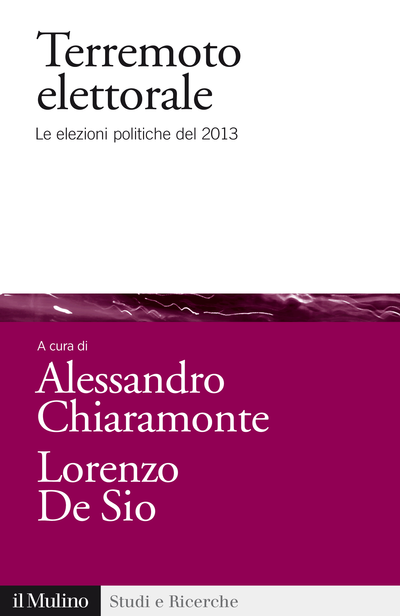Ricerca
-

Terremoto elettorale. Le elezioni politiche del 2013
A. Chiaramonte, L. De Sio (a cura di) Terremoto elettorale. Le…
-
Le collocazioni sinistra-destra e la scelta di voto
Emanuele, V., & Serricchio, F. (2014). Le collocazioni sinistra-destra e la…
-
Terremoto elettorale. Le elezioni politiche del 2013
CHIARAMONTE, A. C. A., & Sio, L. D. (Eds.). (2014). Terremoto…
-
The Elections of 2013: A Tsunami with No Winners
CHIARAMONTE, A. C. A. (2014). The Elections of 2013: A Tsunami…
-
Le elezioni politiche del 2013: uno tsunami senza vincitori
CHIARAMONTE, A. C. A. (2014). Le elezioni politiche del 2013: uno…
-
Premessa
CHIARAMONTE, A. C. A., & Sio, L. D. (2014). Premessa. In…
-
Le elezioni comunali 2013
Fra poco meno di due mesi gli italiani saranno chiamati alle…
-
Elettori alla deriva? I flussi di voto tra il 2008 e il 2013
De Sio, L., & Paparo, A. (2014). Elettori alla deriva? I…
-
Tanto tuonò che piovve: Il risultato delle elezioni
De Sio, L., & Cataldi, M. (2014). Tanto tuonò che piovve:…
-
Do parties still orient voters in times of crisis? Experimental evidence of partisan cueing effects in 2013 Italy
A promising strand of research is adopting survey experimental approaches to…